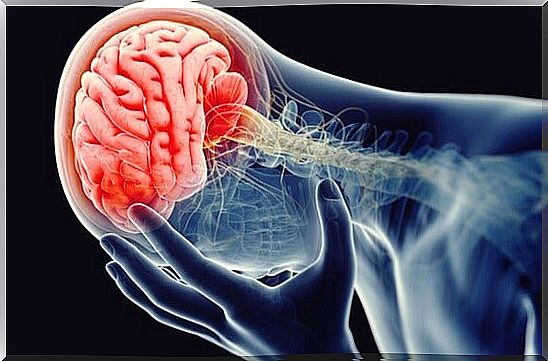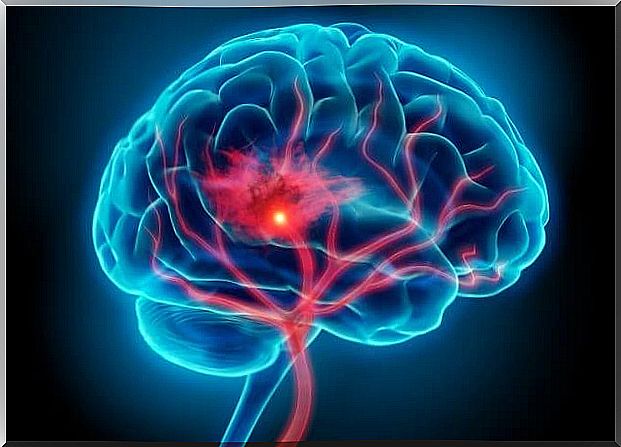Neuroinflammation Or The Inflammatory Theory Of Depression

More and more studies support the inflammation theory of depression. According to these studies, some types of depressive disorders are related to a state of chronic neuroinflammation associated with stress. In this way, these hemodynamic and lymphatic changes would promote the excessive release of cytokines, in turn conforming to psychological discomfort.
This hypothesis is not new. In fact, it is part of what is known as the depression distress theory and many associate it with those factors that would significantly influence endogenous depression. Thus, and although it may seem striking at first to think that the presence of certain pathogens and inflammatory agents can mediate in such a way in our emotional suffering, it must be said that in recent years there is a lot of consensus on the subject.
We can refer to numerous works. Dr Bruce Charlton of the University of Buckingham has been publishing studies for more than a decade on the relationship between an abnormal increase in cytokines and depression. The neurologist Antonio Damasio, for his part, also talks about the “somatic marker”. That is, our body reacts physiologically to certain stimuli that it considers threatening (we experience tachycardia, inflammation, fever …). Later, psychological suffering appears.
Let’s see more data on the subject.

What is the inflammatory theory of depression based on?
If we were to go out into the streets at this time to ask people what depression is, a large part of the respondents would limit themselves to describing the symptoms. Exhaustion, discouragement, bad mood, hopelessness, emptiness, darkness, bitterness, and even physical pain. Now, if we encouraged them to specify or define what generates such debilitating states, almost no one could give an objective answer.
This last question belongs more to the medical and scientific field. And in this case, it should be noted that there is also no clear consensus on what exact factors give rise to this disease. It is not easy in the first place because there are different types of depressive disorders. We are facing a multifactorial condition that, in turn, is expressed in a particular way in each patient.
However , in recent years the inflammatory theory of depression has become more relevant. In the latter case, it would be a clinical reality associated primarily with people with previous histories of anxiety, stress … To better understand this approach, the information provided by a study published in The Journal of Clinical Psychiatry in 2016 will help us.

Depression as a psychoneuroimmune disorder
In a study carried out in the Department of Epidemiology (Janssen Research & Development, New Jersey), an interesting follow-up was carried out on 14,275 people suffering from depression.
- This follow-up lasted 5 years, between 2007 and 2012.
- Through different blood tests I can see that almost 60% of these patients had 46% higher levels of C-reactive protein (CRP), a marker that reveals an inflammatory disease.
- Most of these patients did not respond to ordinary therapies to treat depression.
- In addition, they were men and women subject to certain situations of stress and / or anxiety.
- Likewise, these people with relative markers for an inflammatory disease had a weaker immune system. Their wounds took longer to heal, they suffered more colds, allergies, etc.
Doctors concluded that what they suffered from was a psychoneuroimmune disorder. The inflammatory theory of depression could be applied in those cases where the body itself reacts in a particular way to stressful stimuli. This increase in cortisol in the blood favors the release of cytokines, vasoactive amines, nitric oxide, glucocoticoids … All of this sooner or later leads to high psychological discomfort.
How can we reduce the risk of suffering from this type of depression associated with inflammation?
The inflammatory theory of depression tells us that these states can be prevented. The origin of this condition is above all in our sources of stress: in the way we manage our anxiety, our worries. In case of not doing so, in case of chronifying these states, our body reacts in order to defend itself against this threat. Biochemical changes and inflammation soon appear.
Therefore, to avoid these debilitating situations, let’s take note of some preventive strategies.

Reduce our stress levels
Let’s learn to prioritize. Remember that we must not only rest the mind, our body must perceive that state of calm and internal balance with which to regain balance, homeostasis. Let’s spend time, attention, give ourselves moments of relaxation.
Better nutrition
Let’s avoid foods that cause inflammation: sugars, white flour, saturated fat … Let’s better opt for the following proposals:
- Red fruits: strawberries, blueberries, currants …
- Lemons and oranges.
- Turmeric.
- Whole grains.
- Nuts.
- Green leafy vegetables.
- Garlic
- Pineapple.
- Tomatoes.
- Beets
Regular physical exercise
Go for a walk every day for half an hour, run, swim, dance … Let’s put our body in motion on a regular basis and give it life, make it easier for the heart to work, for the brain to oxygenate, for endorphins and serotonin to embrace us …
Relationship exercises
In our space we frequently talk about the benefits of yoga or mindfulness. From the inflammatory theory of depression they also remind us that these types of strategies are in turn highly recommended to regain internal balance. However, it is enough for us to find those practices that help us, personally, the most to relax.

Some enjoy writing, painting, practicing simple breathing exercises or even spending time with certain people. It is just about finding that perfect balance point, where body and mind harmonize. Where nothing hurts, nothing worries and everything is in fine calm.
Let us therefore promote those states. They are worth it and of course, life.









